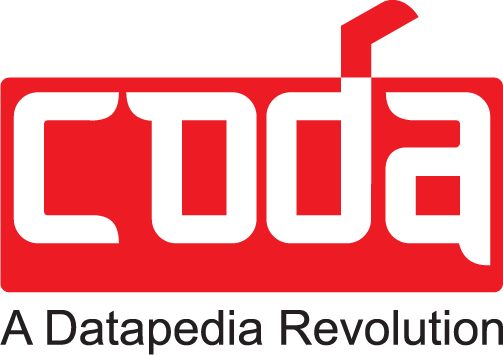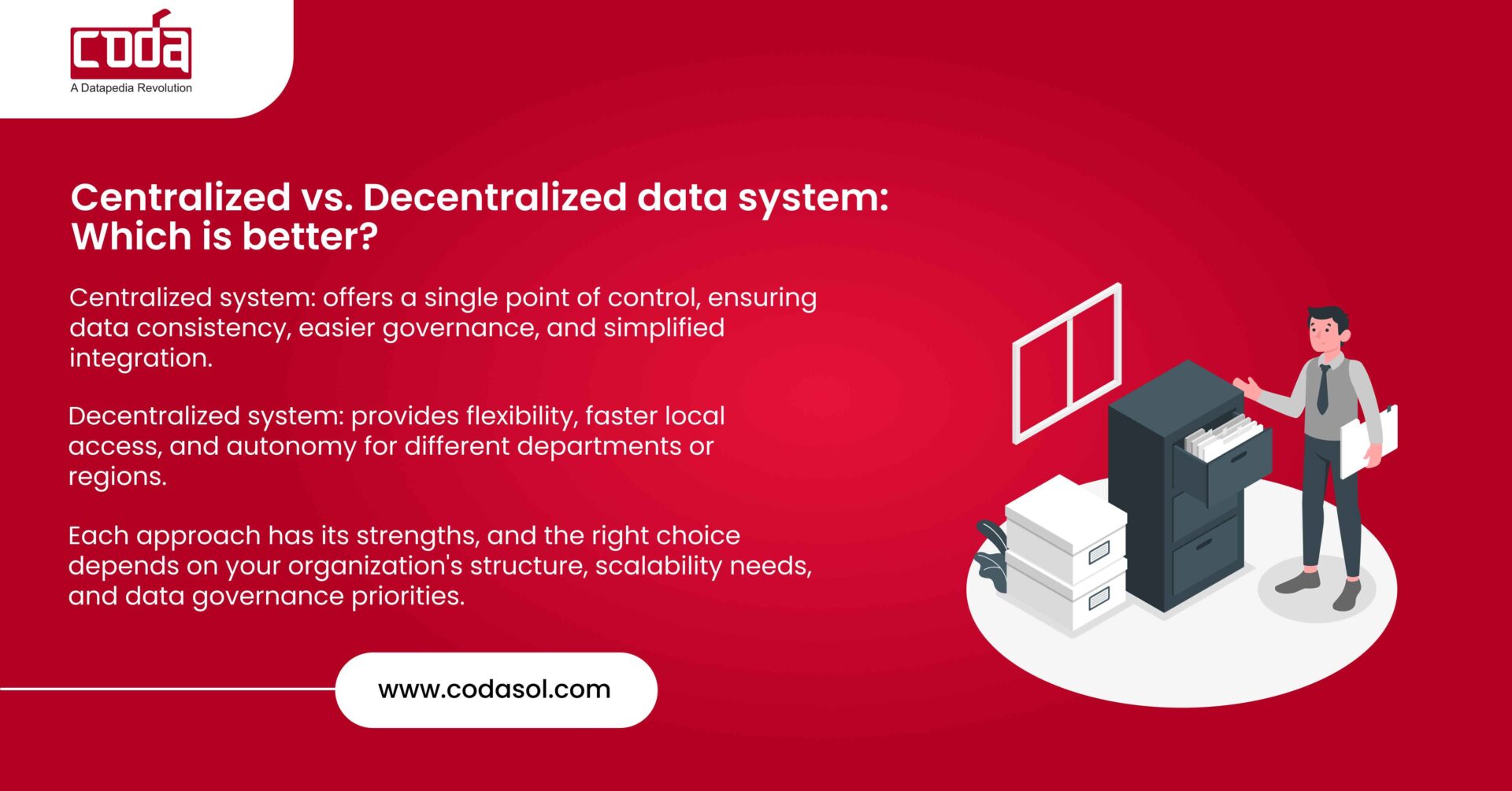Centralized data
As the name suggests, a Centralized data system works with a single source in a network from different locations and departments. Maintaining and managing a centralized system is cost-effective. Data integrity and data quality improve with the decrease in redundancies. It is easier to get notified of updates when there are changes. It also comes with easier portability and preservation.
Decentralized data
The decentralized data system consists of multiple sources with access to various users. It is different from the distributed data system. While a distributed system uses more organized and trustworthy links of users, a decentralized database has no structure or a single source of truth or authority to review the entered data. When an error occurs in this system, if a user doesn’t take up accountability, there’s no way of rectifying them even in the future.
Centralized vs. Decentralized data system
- A centralized data system retrieves, collects, and stores data in one place. It makes it easier to surveil, manage, back up, and update without hassle. On the other hand, in a decentralized system, it is harder to sync data from every source.
- The accessibility of centralized data can get time-consuming if every user takes time to update it. Meanwhile, in decentralized data, time delays in updating will not affect one another. Also, in case of errors, it won’t affect the entire system.
- But the above pros in the decentralized system can be a problem when the data starts lacking consistency. It might cause data silos, duplication, and redundancies across every data source. In centralized data, it will be easier to identify errors and have a detailed overview with consistent updating.
- With centralized data, when a threat to security occurs, entire data in the system might get damaged, erased, lost, or even stolen. But with a decentralized system, if one flounders, the data will still be available in other sources and can be easily retrieved.
- Maintaining a centralized system can ensure data quality by data stewards assessing them constantly. Having multiple data sets with various users might lead to data quality issues since the standard to determine quality can differ with each user.
- The prime takeaway is to analyze and understand what works for an organization depending on their needs, standard, value, and expectations of the outcome.


